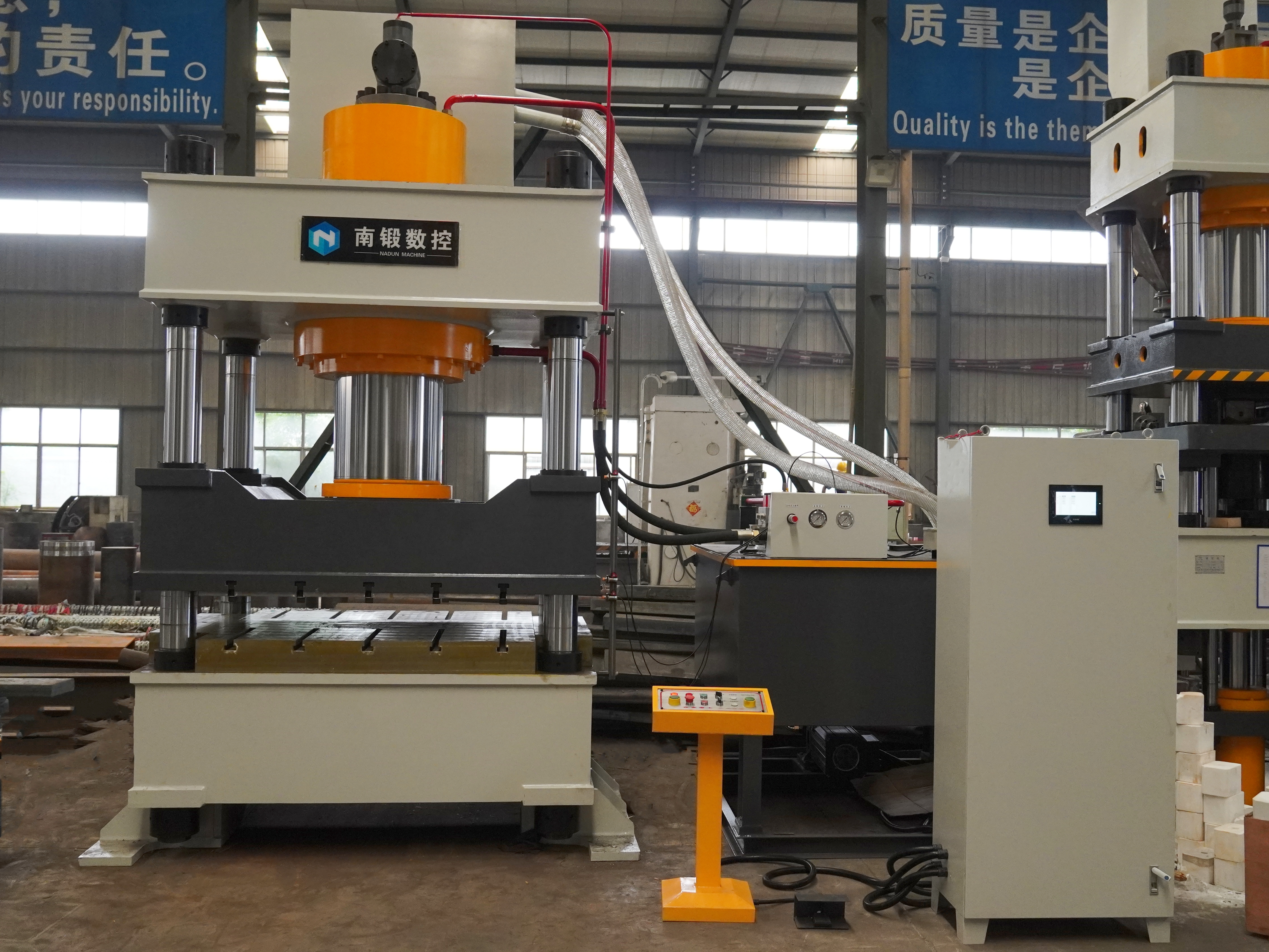How do I choose a hydraulic press machine?
 Choosing a hydraulic press machine can be a complex decision. Here are some factors to consider:
Choosing a hydraulic press machine can be a complex decision. Here are some factors to consider:
1. Determine Your Needs
Workpiece Requirements: Consider the type, size, and shape of the workpieces you will be processing. This will determine the size and capacity of the hydraulic press. For example, if you are working with large metal sheets, you will need a press with a large bed size and high tonnage.
Processing Tasks: Identify the specific processing tasks you will be performing, such as punching, bending, forming, or extrusion. Different tasks require different types of presses and tooling.
Production Volume: Determine the expected production volume. If you have high-volume production needs, you may need a press with high speed and automation features.
2. Consider Machine Specifications
Tonnage: The tonnage capacity of the press should be sufficient to handle your largest workpieces and processing tasks. Consider factors such as material strength and thickness when determining the required tonnage.
Bed Size and Stroke: The bed size should be large enough to accommodate your workpieces and tooling. The stroke length should be appropriate for your processing tasks and workpiece dimensions.
Speed and Cycle Time: Consider the speed at which the press operates and the cycle time for each operation. Faster presses may be more productive, but they may also require more power and maintenance.
Accuracy and Precision: If you require high accuracy and precision in your processing, look for presses with good repeatability and precision controls.
3. Evaluate Machine Construction
Frame Type: Hydraulic presses come in different frame types, such as C-frame, H-frame, and four-column designs. Each type has its advantages and disadvantages in terms of stability, accessibility, and cost.
Material and Build Quality: Look for presses made of high-quality materials and with solid construction. This will ensure durability and long service life.
Safety Features: Check for safety features such as guards, emergency stops, and overload protection. These features are essential for protecting operators and preventing accidents.
4. Assess Hydraulic System
Hydraulic Pump: The hydraulic pump is the heart of the press. Consider the type, capacity, and pressure rating of the pump. A reliable pump with sufficient capacity will ensure smooth operation and consistent performance.
Valves and Controls: The valves and controls regulate the flow and pressure of the hydraulic fluid. Look for presses with high-quality valves and controls for precise operation and easy adjustment.
Hydraulic Fluid: Choose a press that uses high-quality hydraulic fluid that is compatible with your processing requirements. Consider factors such as viscosity, temperature range, and oxidation resistance.
5. Consider Brand and Supplier
Brand Reputation: Choose a well-known and reputable brand with a track record of producing reliable hydraulic presses. Read reviews and ask for recommendations from other users in your industry.
Supplier Support: Look for a supplier that offers good after-sales support, including installation, training, and maintenance services. A reliable supplier can help ensure the smooth operation of your press and minimize downtime.
6. Compare Prices and Costs
Purchase Price: Compare the prices of different hydraulic presses from different suppliers. Consider the features and specifications of each press to determine the best value for your money.
Operating Costs: Consider the operating costs of the press, such as power consumption, maintenance costs, and tooling costs. These costs can add up over time and affect your overall profitability.
By considering these factors, you can choose a hydraulic press machine that meets your specific needs and requirements. It is important to do your research and compare different options before making a decision.
